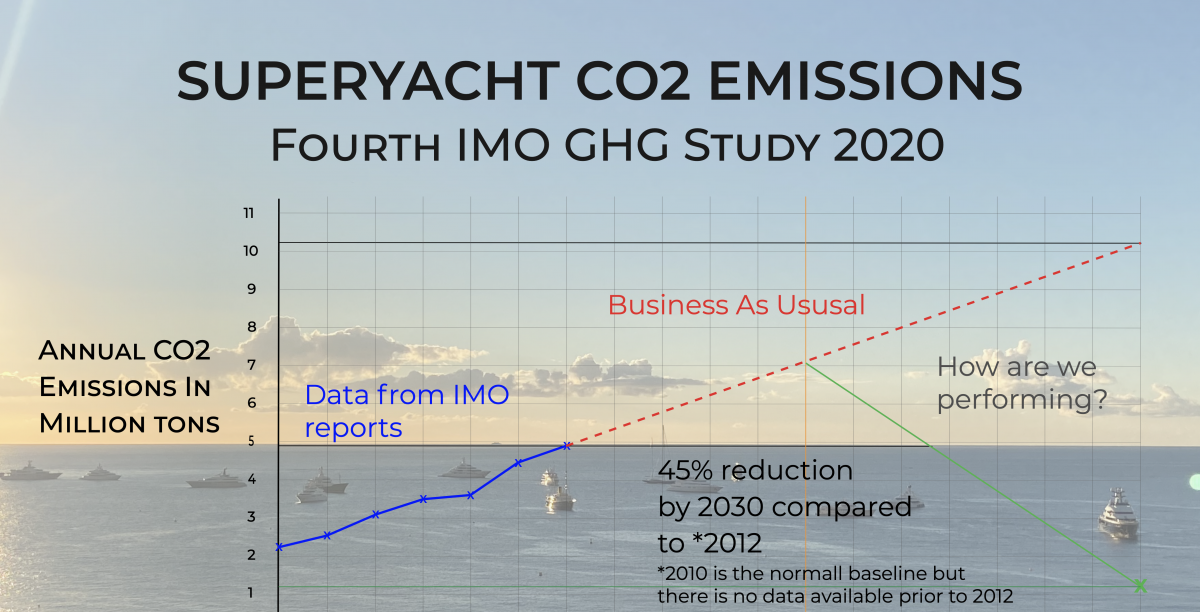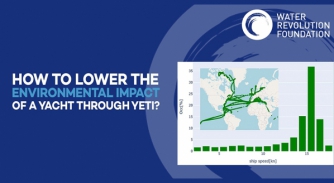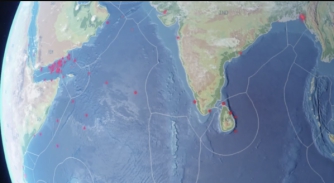Where are we headed In 2023?
Malcolm Jacotine reflects on the contradictory views of industry CEOs, and the implications this has for our sustainability aspirations…
In 2022 two statements stood out for me that highlight the attitude towards climate change and the future of yachting:
“But superyachts are clean!” - CEO of a renowned brokerage
“Adapt or die!” - CEO of a North European shipyard
There is still a large gap between those who believe we can continue with “business as usual” (BAU) and those who believe that the environment and climate change represent an existential threat to the superyacht industry.
To provide some context to these conflicting viewpoints the graph of Superyacht Emissions based on IMO data and projected growth demonstrates how much work there is to do with a BAU pathway.
In terms of a goal, as the industry likes to position itself and its client base at the forefront of maritime technology, should we not be showing leadership and setting a goal of approx. 45 per cent reduction in CO2 by 2030 compared to 2012 (earliest available data from IMO) to align with the Paris Agreement?
The IMO target is based on a 40 per cent reduction in ‘carbon intensity’ or ‘work’ something that is proving difficult to define for yachts, so a net reduction in emissions is a better choice and more easily measured – if only we had the data!

Interestingly, up until 2021, the total CO2e emissions from shipping were relatively flat. Our steeper slope is because, unlike shipping with a replacement cycle of about 20 years, our fleet continues to age and grow year-on-year, with very few yachts going to scrap, and also the regulations driving efficiency gains and CO2 reductions in shipping are not yet applicable to yachts.
This year-on-year growth and lack of measurable efficiency gains mean we have a much harder job of reducing overall emissions. To compensate for growth, ever greater efficiency gains and/or low-carbon fuels would be required just to flatten the slope – as each year passes without action the more difficult it will become to reach the target.
Of course, the graph is not perfect e.g. the IMO data does not include shore power or automotive gas oil (AGO), and it is mainly based on AIS data and bunker receipts of MGO/MDO, so the total emissions may be somewhat underestimated. 2020 and 2021 would also have seen reduced emissions due to COVID, and we do not know if yachts that are coming into the fleet after 2018 are more efficient and, if so, by how much.
Fuel consumption and emissions for commercial shipping are more up to date due to the IMO’s Data Collection Service (DCS - 2019) and the EU’s Mandatory Reporting and Verification (MRV – 2015). Neither of these applies to superyachts due to vessel type and size.
This is where our own ‘verified’ data could help. It would provide us with a baseline and the necessary evidence to prove the industry is taking responsible action and reducing CO2 emissions. Without this data, it would be impossible to counter claims made about the industry.
The same goes for energy efficiency ratings. The more data we provide the likes of The Water Revolution Foundation YETI and The Superyacht ECO Association SeaIndex, the more accurate and useful their tools will become – there is no doubt prospective owners and charterers, as well as lenders and insurers, will be interested in energy efficiency ratings in the coming years.
Most of the data is already in the hands of captains and management companies. Fleet-wide data could be anonymised to avoid any confidentiality issues. It would help provide a more accurate figure of the industry's emissions and improvements over time and is crucial to support the industry's commitment to align with the goals of the IMO and/or the Paris Agreement – surely something that is well overdue and needs to happen.
Whilst there is a lot of noise and dare I say ‘greenwashing’ around the topic, there is a collective silence on any measurable commitments. Where do the major shipyards, brokerage houses, management companies, designers, shipyards and associations like SyBass, MYBA, and ISS stand on decarbonisation?
It’s not as if we do not have solutions.
There are already some innovative yachts in build and proposed that will help prove the alternative solutions, technology, and fuels - these will no doubt help define the future of yachting. There is also much that can be done today through the smart use of energy via operational changes as well as efficiency gains offered by new systems and technology.
We are also seeing the more widespread availability of 2nd generation bio-diesel such as HVO suitable for many legacy yachts and yachts in build that still need diesel fuel which can make an immediate and significant impact.
Will 2023 be the year the industry finally comes together and acknowledges BAU is not sustainable and that we must work collectively to ensure the future of yachting? Will we finally see climate goals being set and the use of data from individual yachts and the fleet as evidence the industry wants to be part of the solution and not part of the problem?
Malcolm Jacotine is a Master Mariner, with an engineering, computing and business background. He is also the founder of Three Sixty Marine’ and the founder of superyacht2030.com
NEW: Sign up for SuperyachtNewsweek!
Get the latest weekly news, in-depth reports, intelligence, and strategic insights, delivered directly from The Superyacht Group's editors and market analysts.
Stay at the forefront of the superyacht industry with SuperyachtNewsweek
Click here to become part of The Superyacht Group community, and join us in our mission to make this industry accessible to all, and prosperous for the long-term. We are offering access to the superyacht industry’s most comprehensive and longstanding archive of business-critical information, as well as a comprehensive, real-time superyacht fleet database, for just £10 per month, because we are One Industry with One Mission. Sign up here.
Related news

Top stories 2022: Headlong into the metaverse
Andy Parkin, Managing Director of KILO, demonstrates VASCO - an augmented reality training platform for ColRegs and BRM
Technology

YETI 1.0 goes live
The Yacht Environmental Transparency Index (YETI) from Water Revolution Foundation aims to define industry sustainability with data
Crew

Data management systems research
The Superyacht Agency is investigating the current market and the effectiveness of superyacht data management and monitoring systems…
Crew

The end of Indian Ocean piracy?
With the removal of the High Risk Zone designation, Simon Rowland, CEO of Veritas outlines the changing landscape of maritime security
Crew

What do you think of data management systems?
The Superyacht Agency is investigating the current market and the effectiveness of superyacht data management and monitoring systems
Crew
Related news
Top stories 2022: Headlong into the metaverse
3 years ago
YETI 1.0 goes live
3 years ago
Data management systems research
3 years ago
The end of Indian Ocean piracy?
3 years ago
What do you think of data management systems?
4 years ago
NEW: Sign up for
SuperyachtNewsweek!
Get the latest weekly news, in-depth reports, intelligence, and strategic insights, delivered directly from The Superyacht Group's editors and market analysts.
Stay at the forefront of the superyacht industry with SuperyachtNewsweek




